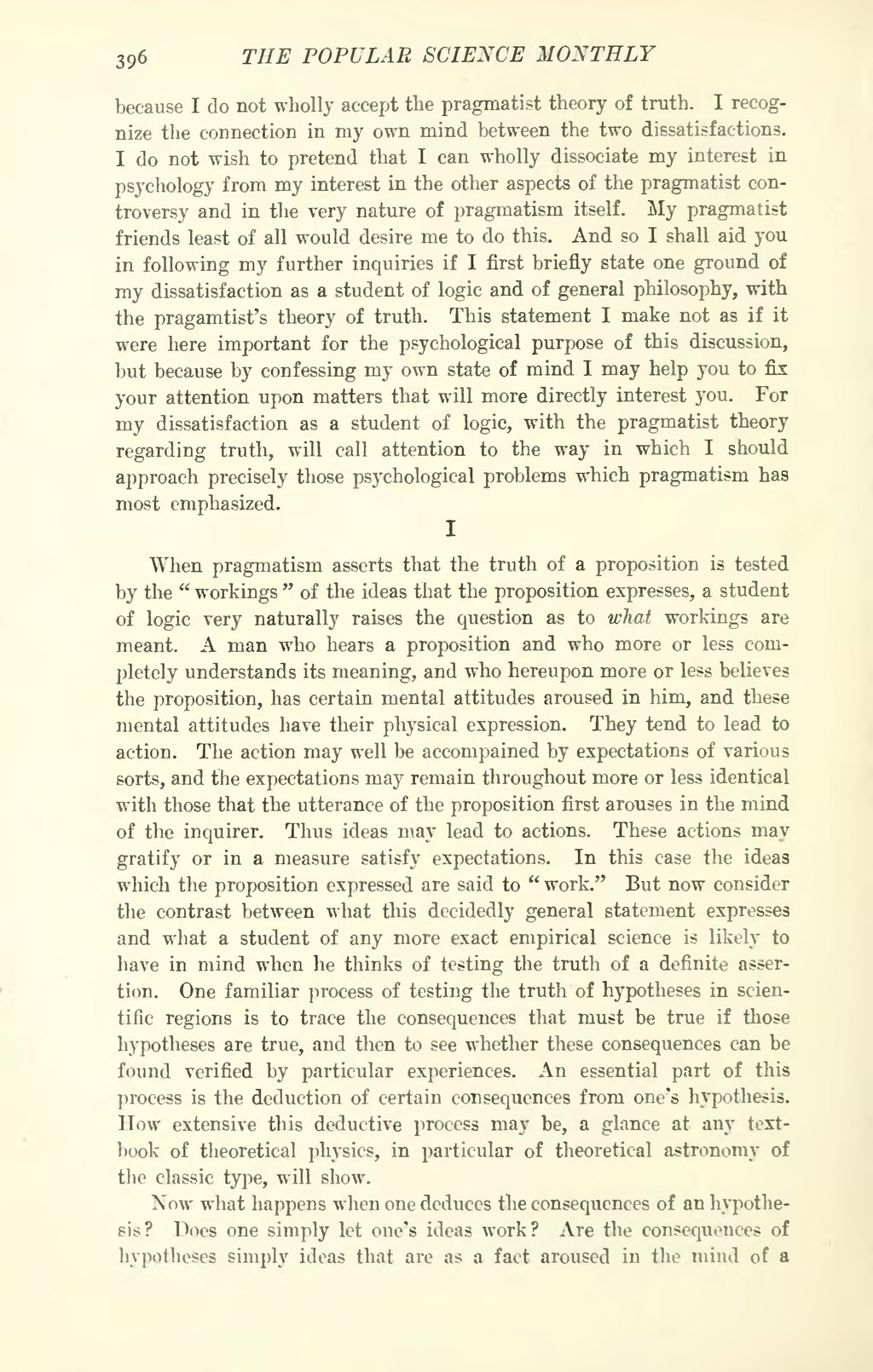because I do not wholly accept the pragmatist theory of truth. I recognize the connection in my own mind between the two dissatisfactions. I do not wish to pretend that I can wholly dissociate my interest in psychology from my interest in the other aspects of the pragmatist controversy and in the very nature of pragmatism itself. My pragmatist friends least of all would desire me to do this. And so I shall aid you in following my further inquiries if I first briefly state one ground of my dissatisfaction as a student of logic and of general philosophy, with the pragamtist's theory of truth. This statement I make not as if it were here important for the psychological purpose of this discussion, but because by confessing my own state of mind I may help you to fix your attention upon matters that will more directly interest you. For my dissatisfaction as a student of logic, with the pragmatist theory regarding truth, will call attention to the way in which I should approach precisely those psychological problems which pragmatism has most emphasized.
I
When pragmatism asserts that the truth of a proposition is tested by the "workings" of the ideas that the proposition expresses, a student of logic very naturally raises the question as to what workings are meant. A man who hears a proposition and who more or less completely understands its meaning, and who hereupon more or less believes the proposition, has certain mental attitudes aroused in him, and these mental attitudes have their physical expression. They tend to lead to action. The action may well be accompained by expectations of various sorts, and the expectations may remain throughout more or less identical with those that the utterance of the proposition first arouses in the mind of the inquirer. Thus ideas may lead to actions. These actions may gratify or in a measure satisfy expectations. In this case the ideas which the proposition expressed are said to "work." But now consider the contrast between what this decidedly general statement expresses and what a student of any more exact empirical science is likely to have in mind when he thinks of testing the truth of a definite assertion. One familiar process of testing the truth of hypotheses in scientific regions is to trace the consequences that must be true if those hypotheses are true, and then to see whether these consequences can be found verified by particular experiences. An essential part of this process is the deduction of certain consequences from one's hypothesis. How extensive this deductive process may be, a glance at any textbook of theoretical physics, in particular of theoretical astronomy of the classic type, will show.
Now what happens when one deduces the consequences of an hypothesis? Does one simply let one's ideas work? Are the consequences of hypotheses simply ideas that are as a fact aroused in the mind of a
